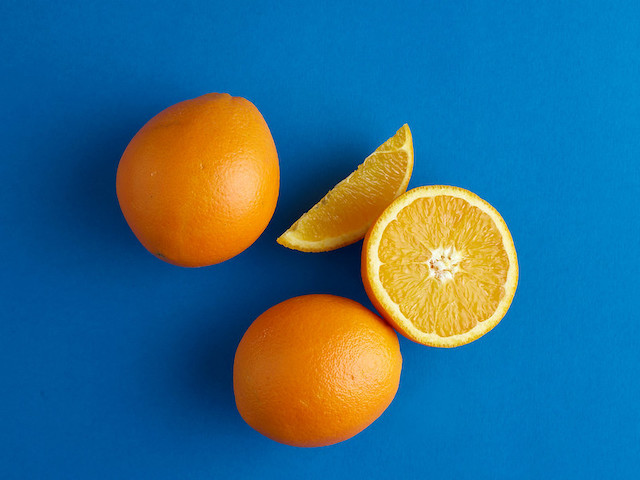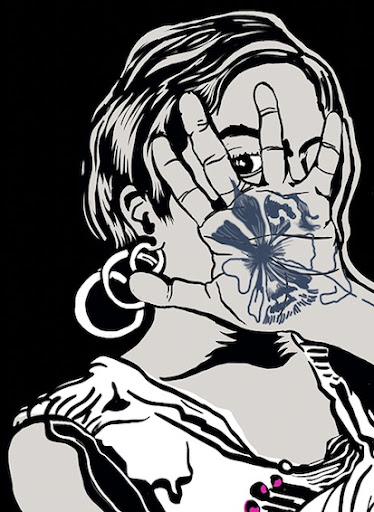In Chinese, filial piety is a homophone for peel.

May 21, 2021
They say Chinese people will eat anything but my mom will never eat unpeeled fruit. She strips a grape’s regal purple with her long pinky nail, exposing a limestone nudity, and pops it, trembling, into her mouth. Then she wipes away the carcass to begin the next one.
Persimmons, too, she rips off the peels with her teeth, spits them out, then bites into the flesh. I wish there was better onomatopoeia for the way she spits. It’s not a ptooey (who even makes that sound?), not the hack of Chinese men spitting their phlegm onto the sidewalk but something more concise and vicious. A gunshot.
When I’m home, my mom peels me fruit. It’s nice and sometimes not, like when she slams the plate down and leaves the room: look at all I do for you. In Chinese school, I read a story about a woman who peeled apples for her mother-in-law and gave the peels to her own kids as scraps to eat. When the children noticed that she hadn’t eaten anything herself, they tricked her into eating the peels by claiming they were too bitter. If feeding is how mothers express love, refusing is how children return the favor. Then what’s gluttony? In Chinese, filial piety is a homophone for peel.
I know crisp white apple slices, freshly 孝’d, are wasted on a child like me: the chiseled edges browning, my atonal Chinese pronunciation, my disregard for whether my fruit is peeled or even washed. The first time I ate a whole apple, I was in fifth grade, at science camp where they taught us things like how to take two-minute showers in your bathing suit, how to waste less, disappear better, eat an apple, peel and core and cyanide-laced seeds and all. It took me an hour to finish, juice dribbling down my chin and fingers, out my sore, gummy mouth of dangling teeth. I felt everyone watching me, and was too scared to talk to them: the teenage camp counselors, the earthy white children with their wispy hair and dirty knees.
My mom has always told me to speak up more: the squeaky wheel gets the oil; look at how my ungrateful family takes advantage of me, who never complains. Living apart, she doesn’t call because she wants me to. I do, sometimes. I buy fruit from Chinatown vendors. I Google recipes for foods she’s cooked for me, and text pictures of what I make, seeking her approval. But of course, I crave more. Of course, she taught me to, in both the way she snaps at the world and the way she’s disappearing from mine—I never want to disappear. So I read books, listen to music, go to parties by and for young people who look like me, with their black-bleached-blond hair. They seem like people I could become, people I want to become, people whose nostalgia is an ingredient for their futures, people who talk about their immigrant moms in their glossy magazine profiles.
Over lychee martinis in a neon-lit bar decorated with posters for Asian films my mom has never seen, I whisper diaspora to my new friends. I’m finding my voice! I slur, holding someone else’s cigarette. I slip through costumes. I undress for no one. Then I feel like shit, sprawled at my cubicle the next morning, where I spiral an empty tangerine peel so that it looks whole, and bat it around like a toy. Has my mom ever indulged like this? Wondering this, it’s as if I love her and all she does for me, or wish I loved her better, but really, I’m obsessed with the things I consume.



